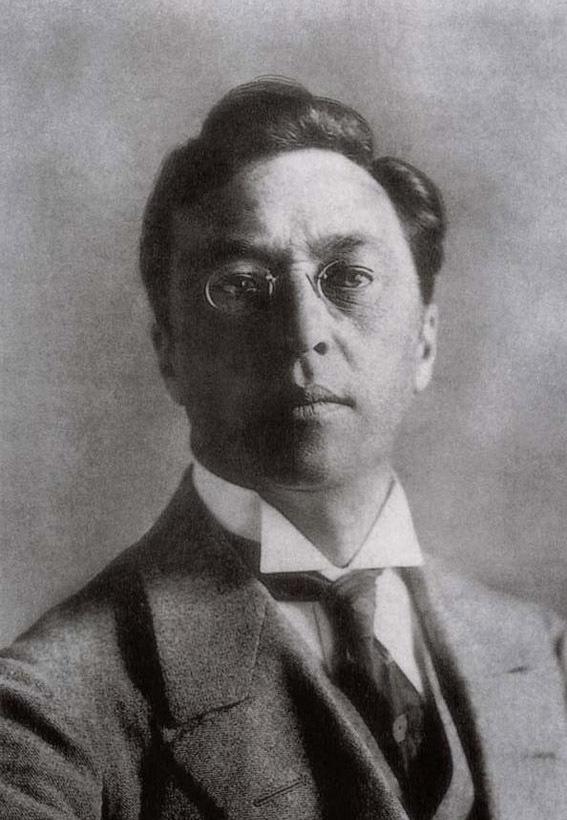
Watercolours — Modernités

Wassily Wassilyevich Kandinsky (Russian: Василий Васильевич Кандинский) was a trailblazer in the art world, known for his pioneering role in the development of abstract art. Born in Moscow, Russia, in 1866, Kandinsky embarked on a journey that would take him from the study of law and economics to becoming one of the most influential artists of his time. His journey into the arts began at 30, a significant shift from a promising career in law to attending the Academy of Fine Arts in Munich. This decision marked the start of a profound exploration of color, form, and the spiritual in art.
Kandinsky's work is celebrated for its innovative use of color and abstract forms, with notable pieces such as "Composition VII" and "On White II" showcasing his ability to evoke emotional resonance through non-representational means. His art was not just about visual aesthetics but also aimed to touch the spiritual and emotional realms of the viewer. He often compared his method of painting to composing music, emphasizing the emotional power of abstract forms and colors. This philosophy was reflected in his theoretical writings, notably in "Concerning the Spiritual in Art," where he laid out his beliefs about the role of art and the artist in society.
Throughout his career, Kandinsky was involved with several avant-garde groups, including Der Blaue Reiter and Die Blaue Vier, collaborating with other influential artists of the time like Paul Klee and Alexej Jawlensky. After the Bauhaus school, where he taught, was closed by the Nazis, Kandinsky moved to France, where he spent the remainder of his life, continuing to evolve his style and contribute to the art world until his death in Neuilly-sur-Seine in 1944.
Kandinsky's legacy is not only in his artworks, which are held in esteemed collections worldwide, such as the Solomon R. Guggenheim Museum in New York, but also in his impact on the course of modern art. He opened up new possibilities for artists by demonstrating that art could venture beyond the representational and delve into the purely abstract, exploring the inner emotional and spiritual life through form and color.
For those captivated by Kandinsky's revolutionary approach to art and interested in the evolution of abstract expression, signing up for updates on new product sales and auction events related to Kandinsky's work is an excellent way to stay informed. This subscription service is tailored for collectors and art experts, ensuring you are the first to know about opportunities to acquire pieces by or related to this groundbreaking artist.

Wassily Wassilyevich Kandinsky (Russian: Василий Васильевич Кандинский) was a trailblazer in the art world, known for his pioneering role in the development of abstract art. Born in Moscow, Russia, in 1866, Kandinsky embarked on a journey that would take him from the study of law and economics to becoming one of the most influential artists of his time. His journey into the arts began at 30, a significant shift from a promising career in law to attending the Academy of Fine Arts in Munich. This decision marked the start of a profound exploration of color, form, and the spiritual in art.
Kandinsky's work is celebrated for its innovative use of color and abstract forms, with notable pieces such as "Composition VII" and "On White II" showcasing his ability to evoke emotional resonance through non-representational means. His art was not just about visual aesthetics but also aimed to touch the spiritual and emotional realms of the viewer. He often compared his method of painting to composing music, emphasizing the emotional power of abstract forms and colors. This philosophy was reflected in his theoretical writings, notably in "Concerning the Spiritual in Art," where he laid out his beliefs about the role of art and the artist in society.
Throughout his career, Kandinsky was involved with several avant-garde groups, including Der Blaue Reiter and Die Blaue Vier, collaborating with other influential artists of the time like Paul Klee and Alexej Jawlensky. After the Bauhaus school, where he taught, was closed by the Nazis, Kandinsky moved to France, where he spent the remainder of his life, continuing to evolve his style and contribute to the art world until his death in Neuilly-sur-Seine in 1944.
Kandinsky's legacy is not only in his artworks, which are held in esteemed collections worldwide, such as the Solomon R. Guggenheim Museum in New York, but also in his impact on the course of modern art. He opened up new possibilities for artists by demonstrating that art could venture beyond the representational and delve into the purely abstract, exploring the inner emotional and spiritual life through form and color.
For those captivated by Kandinsky's revolutionary approach to art and interested in the evolution of abstract expression, signing up for updates on new product sales and auction events related to Kandinsky's work is an excellent way to stay informed. This subscription service is tailored for collectors and art experts, ensuring you are the first to know about opportunities to acquire pieces by or related to this groundbreaking artist.



